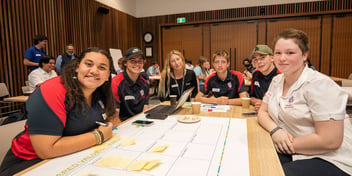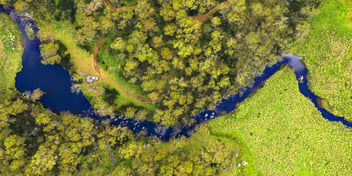Take politics out of water funding, says local council water manager
Small councils face in-built disadvantages when it comes to getting water projects funded, according to one regional council water manager.
Shaun Johnston, Manager – Water and Waste Water at Burdekin Shire Council in North Queensland, has worked in regional areas for more than a decade. He began his career as a cadet engineer in Gympie, and went on to become the manager of eight water and seven sewerage treatment plants there before beginning his current role in 2016.
During his time with regional councils, Johnston has seen firsthand the difficulties smaller organisations face compared to larger players. He said the influence of politics on funding is the biggest issue and often leads to important water projects missing out.
“Getting non-political funding is a big, big thing. It would be good if we could get some of the politics out of the funding because it creates some very strange results,” he said.
One example of this is a new sewerage technology, which Johnston said had the potential to help save the Great Barrier Reef, missing out on funding in a round where a new equestrian complex was successful.
“In that case, the selection criteria was skewed towards creating jobs, so the funding was given based on what could create the most jobs, not on who had the best overall project,” he said.
“The timing of the funding was rushed forward for an election … State politics has a lot to answer for as far as efficiencies and sensible forward movement in the water and sewage industry in Queensland go.”
Johnston said this politicisation of funding often forces small councils to be purely reactive when it comes to their water and wastewater programs. Even applying for funding can be a prohibitive exercise for councils that don’t have the time and resources to focus on developing proposals ahead of time.
“All planning is based on a big ‘if’. Anything other than emergency work has to be worked out well in advance, and you might have to submit something a number of times until you get the right funding model,” he said.
“That favours the big players because they have people dedicated to do a lot of that work and the smaller players often miss out as a result.”
Compounding the problem is the issue of councils robbing funding from water and sewage to pay for “white elephant” projects.
“Many of the councils are getting away with treating water and wastewater as a milking cow. It doesn’t happen in my council here, but I know there are many robbing from water and wastewater funds to do other things.”
This happens in part because often councils and the public are either uneducated or disinterested in their town’s water and sewage – until something goes wrong. As customers don’t see pipes deteriorating in the ground, or understand water-related health issues (PFAS is a problem for Burdekin at the moment), Johnston said it’s important to educate the community about the importance of water and wastewater and ensure councils know they can’t use these as easy sources of revenue.
Despite the challenges, Johnston said there are big advantages to being a smaller council. They generally have a deep understanding of the community they serve, and employing fewer team members means everyone has a broad skill set, as opposed to large organisations where most jobs are extremely specialised.
“In a small organisation, the people working there know the condition of their assets. They know who might be stealing water. They know who might be illegally putting things into the sewer system. All that knowledge is intrinsic to the organisation and there’s no need for specialist programs.”
Innovating in a small council can also be easier than in one run like a large corporation, where bureaucracy and politicking can slow things down. Johnston pointed to smart metering as an example of this.
“The first organisation that did smart metering in Queensland was Wide Bay Water [part of Fraser Coast Council] and the second was Gympie Regional Council,” he said.
As for Johnston, he has just received funding for the design of the new sewerage technology that missed out in the previous round. The technology removes nitrogen and phosphorous using about 10% of the carbon and money of current treatment processes.
“Instead of being $300 million, it could be $50 million to upgrade a lot of the small treatment plants … Because of the advantages of small organisations, a large part of the technological advancement happens in those areas.”


